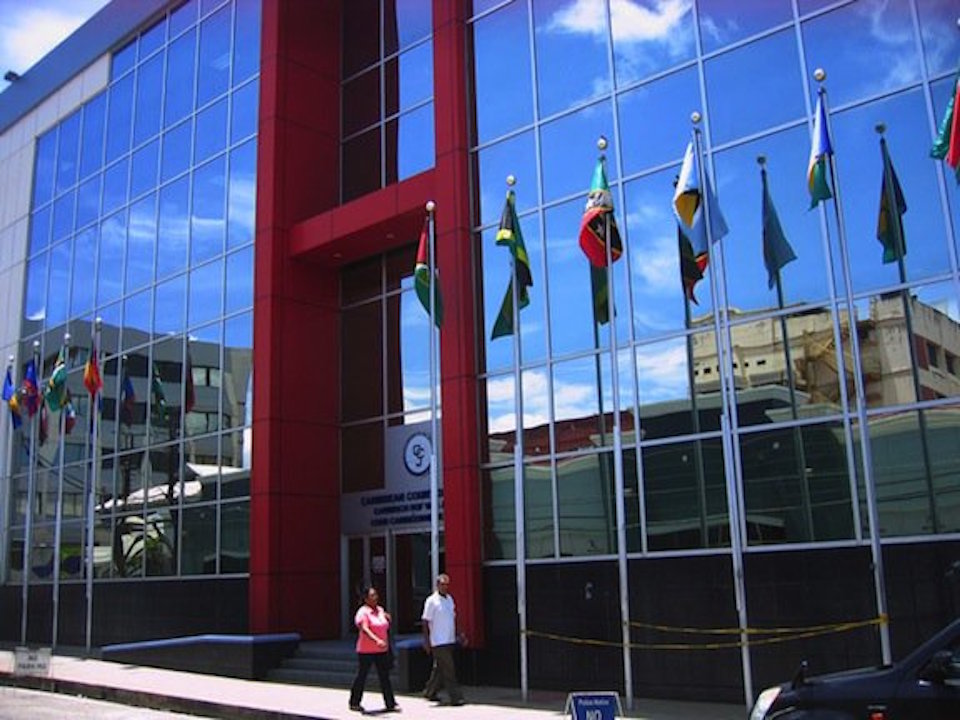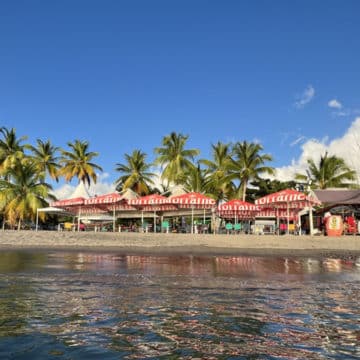The Caribbean Court of Justice — And What It Means For the Region
How the Caribbean Court of Justice benefits the Caribbean
By Jeffrey H. Foreman
Op-Ed Contributor
In the decades-long debate over the establishment and adoption of the Caribbean Court of Justice (CCJ) as the final court of appeal for the English speaking countries of the region, one of the primary arguments in favour of the court has been the potential positive role it could play in the development of our jurisprudence. By this it is meant that having a court comprised of individuals who have a greater connection to life in the region than their London based counterparts case law will emerge that is more sensitive to our social and economic realities.
Those who have studied the CCJ’s case law have concluded that these expectations have been met. One of the most recent reviews of the court’s judicial work to date was done by Professor Rose-Marie Bell Antoine who, among other things, has described the court’s decisions as a continuation of a “fine tradition of sound judicial reasoning from Commonwealth Caribbean courts”. An example of this fine tradition in the area of constitutional law is the October 2015 judgment of the CCJ in a case brought by several Maya peoples of Belize for damages arising out of their government’s failure to prevent private individuals from destroying their customary land tenure. The court ruled that the state was in breach of the right to protection of the law for its failure to ensure that the Maya’s constitutional right to property was protected from intrusion by external forces. In coming to this conclusion the court was influenced by the history between the state and the Maya including an agreement between the two parties in which the government agreed to take certain steps to identify and protect Maya lands, rulings of the Belize Supreme Court, and recommendations of the Inter-American Commission on Human Rights. The court therefore affirmed the notion that in some circumstances the state must actively protect the constitutional rights of its citizens. This may be contrasted with ‘negative’ obligations such as, for example, refraining from infringing freedom of speech.
The truly significant feature of the CCJ’s ruling was the remedy granted to the Maya people. Constitutional remedies in the region are usually limited to declarations and awards of compensation. The latter was not appropriate because the Maya had not properly pleaded and proved its loss. The court was nevertheless willing to give effect to the potentially wide scope of redress that the constitution can provide by ordering the government to establish a fund to help identify and protect Maya customary land tenure. This judgment is a seminal one in the development of constitutional law in the region and should undoubtedly be highly persuasive in those countries where a history of state neglect has resulted in citizens being denied the full benefit of even the most basic fundamental rights.
What has not received as much commentary in the public square is the impact the CCJ has had on the development of the legal system in the region beyond its adjudicative role. In various other respects the court has improved the administration of justice and the legal profession as a whole. The use of electronic filing of court documents is one example. Parties to disputes before the court are saved the expense of printing volumes of paper and are instead required to submit documents electronically. This is a blueprint for how those measures can be employed throughout the legal systems in the region to reduce legal costs and promote efficiency in court administration.
Institutions have developed around the court as well. Three examples of note here are the Judicial Research and Institutional Strengthening Project (JURIST), the Caribbean Association of Judicial Officers (CAJO), and the Caribbean Academy of Law and Court Administration (CALCA).
The CCJ is the implementing agency for JURIST. The aim of this programme is to assist in improving the efficiency of court systems across the region to ensure that justice is administered in a timely manner. One of the strategies being used in this regard is the incorporation of information and communications technology (ICT) in the case management systems in the courts.
CAJO provides a forum for the development of judges and magistrates across the region through judicial education programmes. Its last major event was held in Jamaica in September 2015
CALCA performs an educational role. Through the organization of conferences, seminars, workshops, and special lectures CALCA furthers training and research in law. In its initial years this entity has held conferences on a range of issues concerning international law and the Revised Treaty of Chaguaramas (RTC).
CALCA has aimed to make its work relevant to the times. At its last biennial conference the focus was on the implementation of international law and in particular global and regional trade law. The timing was apposite as it came after the first case in which the CCJ in its original jurisdiction awarded damages to an individual for a state’s breach of the RTC; this case being the much talked about Shanique Myrie v Barbados. In the aftermath of the case many in Jamaica raised doubts regarding Barbados’ commitment to honor the judgment notwithstanding statements from those occupying the highest offices in Barbados that the country would meet its legal obligations. As a participant in the last conference I can attest to its usefulness in expanding my knowledge of international law and the role that courts in the region can play in ensuring that the benefits of the CSME regime redound to individuals in the region.
CALCA’s fourth biennial conference (which is being organised in partnership with Jamaica’s General Legal Council) takes place October 26 – 29, 2016. Much like the previous conference the topic is relevant and timely: “Law At The Crossroads – Reappraising The Role of Common Law and Civil Law Practitioners in Transnational Development”. The broad themes of the conference are the ways in which the practice of law has spread beyond national borders and the effect of this in commercial law, the role of law in human development, and legal ethics in the modern era.
Specific presentations will highlight commercial law issues having with an international component such as the Panama Papers controversy, the US Foreign Account Tax Compliance Act (FACTA), and the (sadly) under-reported correspondent banking crisis. Given the structural dependence of the region on the flow of foreign capital into our economies, an understanding of these issues is critical to our ability to adjust and respond to the challenges they present. Other topics of interest include the emergence of arbitration in settling commercial disputes, the implications of BREXIT on the legal profession, and the use of technology in advancing the delivery of justice. All of these are important to the practice of law in the Caribbean.
This year’s conference is therefore of great benefit to a range of persons in the legal profession as well as those in accounting, finance, and business. By putting together professionals from across the region and the world to discuss issues of utmost importance to Small Island Developing States, CALCA (and by extension the CCJ) is playing a role in empowering various actors in the region through the advancement of knowledge of the world around us.
So despite only four countries acceding to the appellate jurisdiction of the Caribbean Court of Justice and directly benefitting from an accessible final court, developing the law to suit the needs of their countries, the very existence of the court and the architecture that has developed around it is ensuring that the entire region benefits from its existence.
Jeffrey H. Foreman is an Attorney-at-Law.
Note: the opinions expressed in Caribbean Journal Op-Eds are those of the author and do not necessarily reflect the views of the Caribbean







